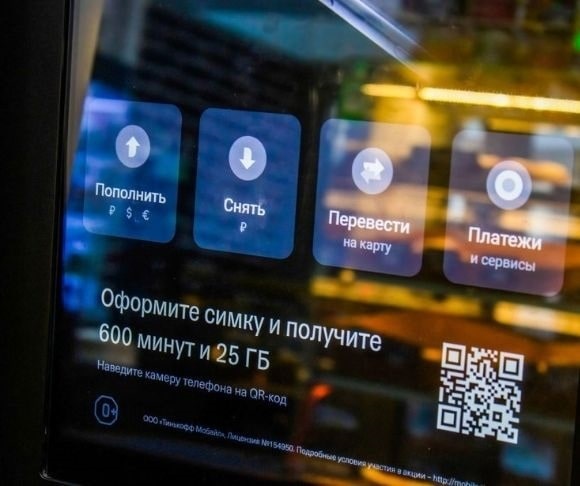The international community has responded to Russia’s invasion of Ukraine with economic sanctions, financial penalties, and capital restrictions. President Vladimir Putin may have been confident to skirt these pecuniary repercussions with a diverse $630 billion war chest and a SWIFT banking alternative. However, with the West targeting these components, it appears Moscow is hanging on by a thread because of sky-high commodities and the world’s desperation to keep the lights on. Suffice it to say, the Kremlin is heading off a fiscal cliff, and one of the final nails in the Eastern European nation’s coffin could be a technical default.
March 16 could be a critical date for the Russian financial system. Two bond coupon payments are scheduled for this date, and if Moscow fails to make a payment to bondholders, the government will face a technical default. However, like most bonds worldwide, Russia has installed a 30-day grace period into its debt instruments, meaning that April 15 might be the day of default. Either way, mark it on your calendars!

People line up to withdraw U.S. dollars at a Tinkoff ATM in Moscow (Photo by Vlad Karkov/SOPA Images/LightRocket via Getty Images)
April 4 is when a $2 billion bond matures, meaning that the first principal payment is due for Russia.
It should be noted that Moscow did make a ruble-bond coupon payment on March 2. The trouble was that foreign holders, like BlackRock and Vanguard, could not access the cash amid the ban on transfers to foreign owners of OFZ bonds. This could prompt Putin, the Ministry of Finance, and the Central Bank of Russia to prioritize domestic savers in the immediate future rather than foreign bondholders, even if it means defaulting and sacrificing its credit rating and reputation on global capital markets for many years to come.
Whatever the case may be, the consensus on Wall Street and in the international finance industry is that a default is almost guaranteed, particularly if harsher sanctions are applied. At this stage of the Ukraine-Russia conflict, Moscow is at the point of no return. Can the Russian economy ever be resuscitated?
Wheat a Minute

(Photo by Majdi Fathi/NurPhoto via Getty Images)
Wheat futures are in bloom, with prices trading at their best levels since 2014. The May futures contract topped $12 per bushel, enjoying multiple limit-ups – the maximum amount a price is allowed to rise throughout a single session – during the trading week. As a result, the agricultural commodity recorded a weekly gain of 40.6%, lifting its year-to-date surge to 57%. It appears there is no end in sight, particularly as more markets, like Hungary, ban their grain exports.
But why is wheat increasing at an incredible rate? You guessed it: Russia, Russia, Russia. Moscow is presently the world’s largest producer of the crop, while Ukraine is the fourth-largest exporter. Investors are terrified that there could be enormous trade flow disruptions in the wheat market after Ukraine announced that its critical Black Sea ports would remain closed until the war has ended. Put simply, no wheat shipments can be sent from the country by water. In addition, shipping firms have stopped taking orders for deliveries from or to Russia, meaning that there is essentially no buyer for the nation’s wheat.
So, at least one-fifth of global wheat exports have left the marketplace. Because it will be challenging for farmers to plant spring grains, next season’s output and inventories will be minimal. This has prompted China to employ importers to find other supplies of wheat and other commodities as prices continue to spike. Indeed, wheat is not the only agricultural product to increase significantly. Coffee, corn, lean hogs, orange juice, and soybeans have climbed noticeably this year.
Sorry, shoppers, there will be a price spike coming to every aisle at the neighborhood supermarket.
Corporate America Waves Bye to Russia
Bloomberg’s Tim Culpan may have said it best in a recent op-ed: “While that sounds like an appropriate response to Moscow’s brutality, it also smells of opportunism…”
 This statement was in response to the growing number of U.S. and European corporations fleeing Russia and taking their capital and business with them back home. Many well-known brands have ditched Moscow in the wake of Putin’s invasion of his western neighbor, pretending that they maintain a modicum of virtue and respect. Who has abandoned the Russian market in recent days?
This statement was in response to the growing number of U.S. and European corporations fleeing Russia and taking their capital and business with them back home. Many well-known brands have ditched Moscow in the wake of Putin’s invasion of his western neighbor, pretending that they maintain a modicum of virtue and respect. Who has abandoned the Russian market in recent days?
BP, Exxon Mobil, and Shell have exited oil and gas operations, severed ties with their counterparts, or halted financing of pipelines and energy projects. BMW, Ford, and GM suspended operations and will stop shipping automobiles. Nike ceased online commerce, while Adidas ended its partnership with the Russian Football Union. Apple paused product sales, Dell will no longer sell its technology, and Ericsson has temporarily stopped deliveries. The International Feline Federation announced it is banning Russian cats from all competitions.
Checkmate, Vladimir Putin.
But is it nothing more than virtue-signaling? Perhaps the answer to this question may depend on this: Would Corporate America stop selling products with “Made in China” tags if Beijing invaded Taiwan?
~ Read more from Andrew Moran.




